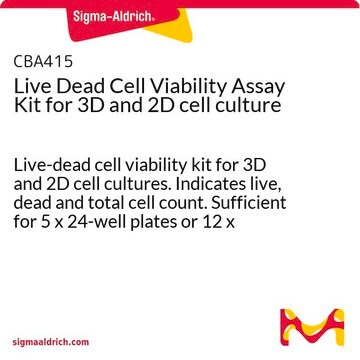SRP3157
Sox2 human
recombinant, expressed in E. coli, ≥95% (SDS-PAGE), ≥95% (HPLC), suitable for cell culture
Iniciar sesiónpara Ver la Fijación de precios por contrato y de la organización
About This Item
UNSPSC Code:
12352200
NACRES:
NA.32
Productos recomendados
biological source
human
recombinant
expressed in E. coli
assay
≥95% (HPLC)
≥95% (SDS-PAGE)
form
lyophilized
mol wt
34.3 kDa
packaging
pkg of 25 μg
technique(s)
cell culture | mammalian: suitable
impurities
<0.1 EU/μg endotoxin, tested
color
white
UniProt accession no.
shipped in
wet ice
storage temp.
−20°C
Gene Information
human ... SOX2(6657)
General description
Sox2 (sex determining region Y (SRY)-box 2) is one of the 20 human SOX transcription factors, which are characterized by the highly conserved ∼80-residues DNA-binding HMG (high-mobility group) domain. This domain was initially identified in the testis-determining factor Sry.
Recombinant human Sox2 is a 34.3 kDa protein containing 317 amino-acid residues.
Recombinant human Sox2 is a 34.3 kDa protein containing 317 amino-acid residues.
Biochem/physiol Actions
Sox2 (sex determining region Y (SRY)-box 2) transcription factor participates in maintaining self-renewal and pluripotency of embryonic stem cells. The expression of this protein is aberrant in various human malignancies, and it acts as an oncogene in esophageal squamous cell carcinoma (SCC). SOX2 promotes proilferation, migration and adhesion abilities of dental pulp stem cells (DPSCs), and this might have applications in tissue engineering. It participates in Ewing′s sarcoma cell proliferation, and its inactivation results in apoptosis and G1/S arrest, in a PI3K (phosphoinositide 3-kinase)/Akt pathway-mediated manner.
Sequence
MYNMMETELK PPGPQQTSGG GGGNSTAAAA GGNQKNSPDR VKRPMNAFMV WSRGQRRKMA QENPKMHNSE ISKRLGAEWK LLSETEKRPF IDEAKRLRAL HMKEHPDYKY RPRRKTKTLM KKDKYTLPGG LLAPGGNSMA SGVGVGAGLG AGVNQRMDSY AHMNGWSNGS YSMMQDQLGY PQHPGLNAHG AAQMQPMHRY DVSALQYNSM TSSQTYMNGS PTYSMSYSQQ GTPGMALGSM GSVVKSEASS SPPVVTSSSH SRAPCQAGDL RDMISMYLPG AEVPEPAAPS RLHMSQHYQS GPVPGTAING TLPLSHM
Physical form
Lyophilized from 10 mM Sodium Acetate, pH 6.0.
Reconstitution
Centrifuge the vial prior to opening. Reconstitute in water to a concentration of 0.1- 1.0 mg/ml. Do not vortex. This solution can be stored at 2-8°C for up to 1 week. For extended storage, it is recommended to further dilute in a buffer containing a carrier protein (example 0.1% BSA) and store in working aliquots at -20°C to -80°C.
Storage Class
11 - Combustible Solids
wgk_germany
WGK 3
flash_point_f
Not applicable
flash_point_c
Not applicable
Certificados de análisis (COA)
Busque Certificados de análisis (COA) introduciendo el número de lote del producto. Los números de lote se encuentran en la etiqueta del producto después de las palabras «Lot» o «Batch»
¿Ya tiene este producto?
Encuentre la documentación para los productos que ha comprado recientemente en la Biblioteca de documentos.
Effects of SOX2 on Proliferation, Migration and Adhesion of Human Dental Pulp Stem Cells.
Liu P et al
PLoS ONE, 10(10), e0141346-e0141346 (2015)
High sex determining region Y-box 2 (SOX2) expression correlates with absence of nodal metastasis in esophageal squamous cell carcinoma.
Chuang WY et al
International Journal of Clinical and Experimental Pathology, 8(8), 9248-9255 (2015)
Inhibition of SOX2 induces cell apoptosis and G1/S arrest in Ewing's sarcoma through the PI3K/Akt pathway.
Ren C et al
Journal of Experimental & Clinical Cancer Research, 35, 44-44 (2016)
Samudyata et al.
Experimental cell research, 381(1), 129-138 (2019-05-12)
Sox2 is a master transcriptional regulator of embryonic development. In this study, we determined the protein interactome of Sox2 in the chromatin and nucleoplasm of mouse embryonic stem (mES) cells. Apart from canonical interactions with pluripotency-regulating transcription factors, we identified
Jun Guo et al.
Biochemical and biophysical research communications, 390(4), 1081-1086 (2009-11-11)
Recently, a series of exciting reports have revealed that terminally differentiated somatic cells can be reprogrammed to generate induced pluripotent stem (iPS) cells via overexpression of a cocktail of transcription factors such as Oct3, Sox2, Klf4, and c-Myc or Oct3
Nuestro equipo de científicos tiene experiencia en todas las áreas de investigación: Ciencias de la vida, Ciencia de los materiales, Síntesis química, Cromatografía, Analítica y muchas otras.
Póngase en contacto con el Servicio técnico








